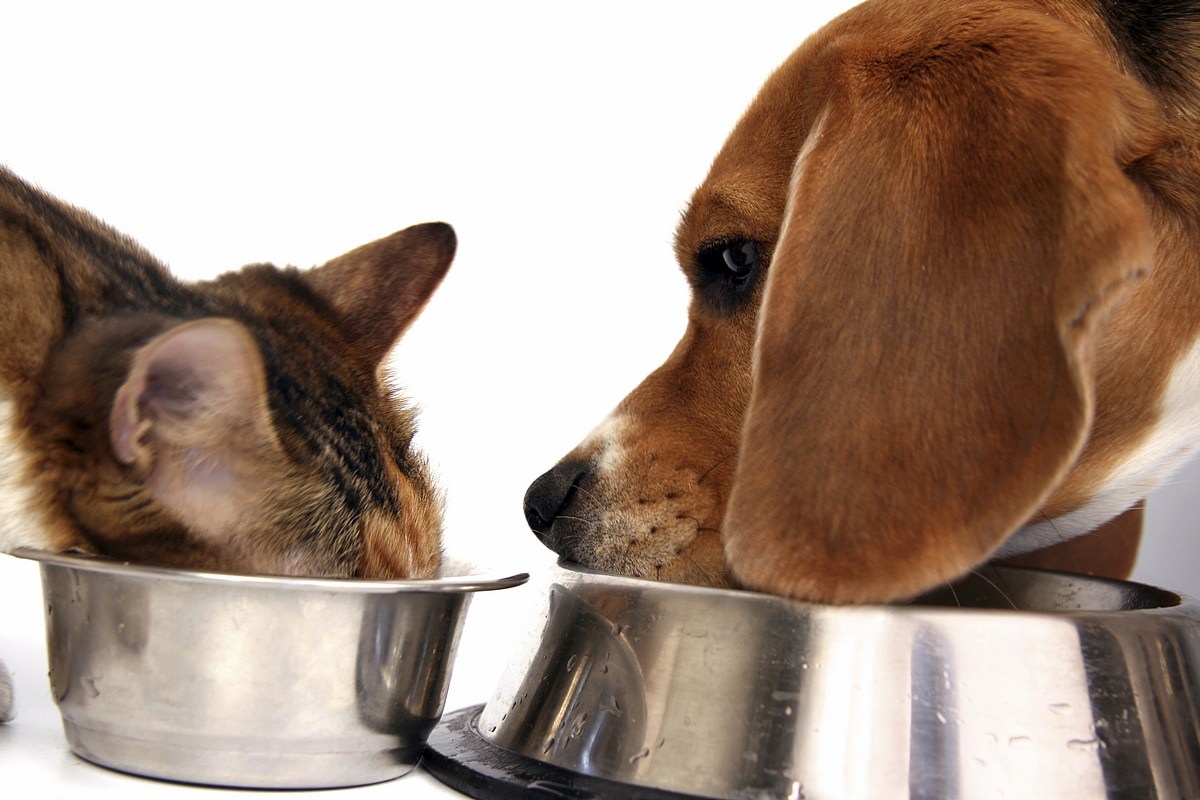Dog owners know that there is very little that a dog won’t eat if he can get a hold of it. Wild dogs will hunt in packs, but they have no problem subsisting off of scavenged food that may be as many as several days old. This scavenged food could be the remains of another animal’s kill, a baby animal that didn’t make it, or the feces of another large forest animal. All of that is pretty gross, but wild dogs have a stomach for it, and when it comes to survival, a meal is a meal.
A long time ago, before they were man’s best friend, wild dogs—wolves really—were hunters and scavengers but there was a third option. After realizing that they could follow roaming tribes of humans and benefit from their scraps and settlements, these pre-domestication wolves overcame their natural fear of humans and began to live in harmony with them.
The prehistorical details are fuzzy, but experts believe that one of two things happened: either bold wolves integrated themselves into a mutually beneficial relationship with early people or, alternatively, bold humans stole and raised wolf pups to much the same effect. Either way, the outcome was still the same, and the animals we know as dogs today developed from those early wolves.
Early dog domesticators took care of their new friends, and as a result the dogs rarely had to hunt for themselves. The dogs were fed scraps from animals that groups of humans could kill, but that the dogs themselves could rarely hope to reliably kill. Life was good.
Modern dogs are something of an evolutionary far cry from their much wilder and resilient ancestors—regular meals of purpose formulated food is a much better arrangement for them than the odd scraps. This doesn’t stop them from scavenging; knocked over garbage bins and torn packages are the penalty for an inattentive dog owner.
Dogs, Cats, and their Food
Aside from whatever scraps hit the floor, dogs have a very strict diet. Dog food is designed to address all of the animal’s nutritive needs, and aside from age-based variations, those needs won’t change. It should come as no surprise then, that cat food is formulated for cats. Of course that won’t stop dogs from getting into cat food, but should they be eating it?
The short answer is no.
Cats have different nutritive needs and proportionally speaking they eat less food than dogs, not just because of their size, but the amount of food they eat per pound of body weight is much less than dogs. This means that their formulas are higher in fat, protein, and fibre than dog food and it will be overall much denser. Also, due to the fussy eating habits of cats, their food is much more flavourful and as a result is even more tantalizing to dogs.
Researchers haven’t fully explored what happens to a dog over time if he or she habitually eats food formulated for cats, but based on what they do know about canine nutrition needs, some inferences can be made. A high protein diet for dogs can inhibit puppy development, and it can reduce kidney function in adults, so there are some long term health concerns for dogs that are chronic cat food eaters. Plus, dogs that are put on specific diets to correct the symptoms of pancreatitis and digestive upset will disrupt their regimens with the high-density cat food.
A dog that escapes these more serious consequences will certainly fall victim to the most common effect of dogs eating cat food: weight gain. The high density, high fat cat food will pack on pounds without providing your dog with a feeling of being satisfied. Plus, what may be a full meal for a cat can be chomped up in a second by a hungry dog, so while your dog gets fat, your cat won’t be getting the nutrition it needs.
All of these outcomes are concerns for habitual cat food eaters, but a dog that occasionally breaks the rules will rarely have any serious negative side effects. Some dogs with delicate digestive systems may get diarrhea—sudden dietary changes can cause digestive distress. If this is the case, you can contact your vet to work out a safe dose of Pepto-Bismol for your dog’s age and weight.
